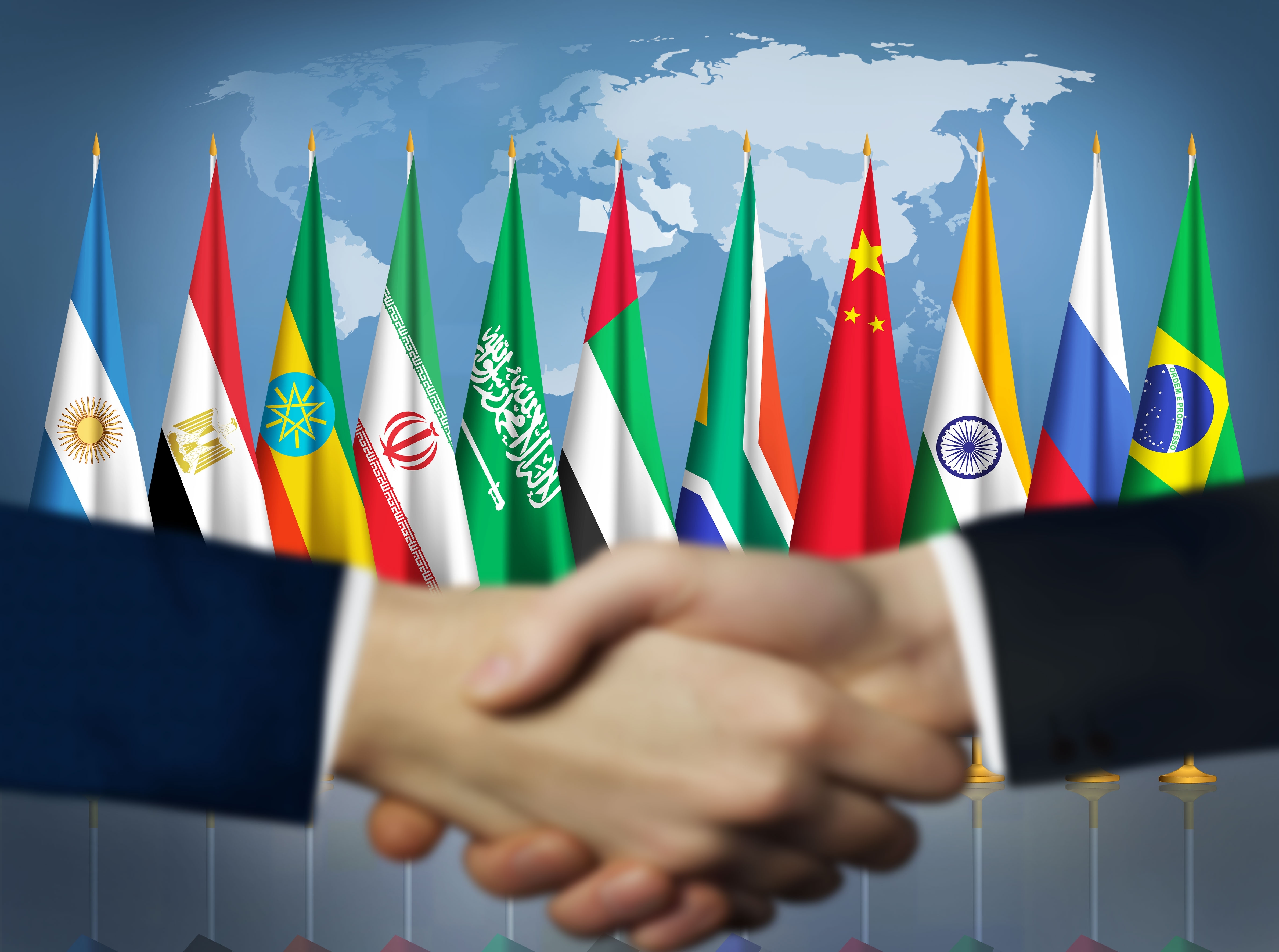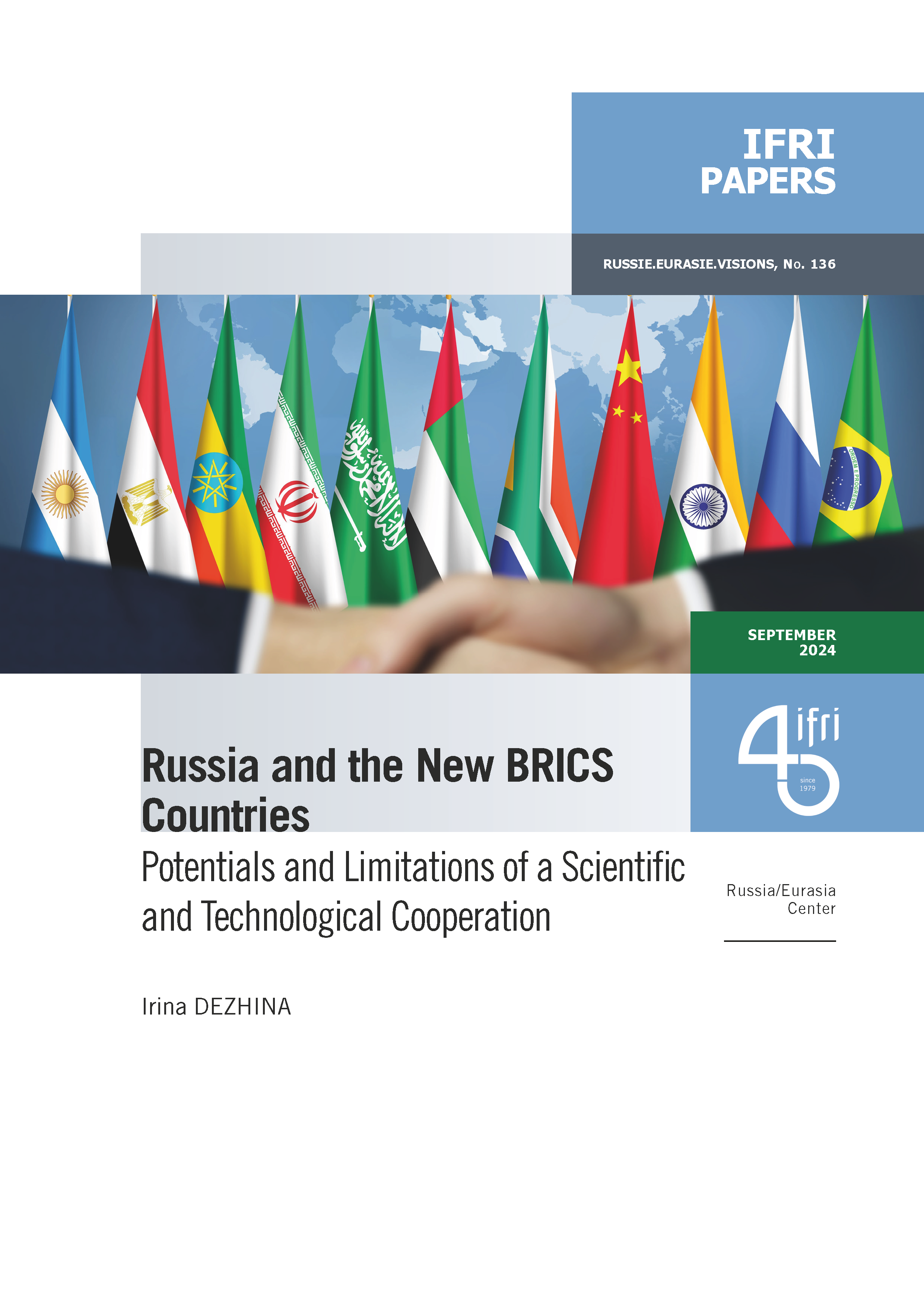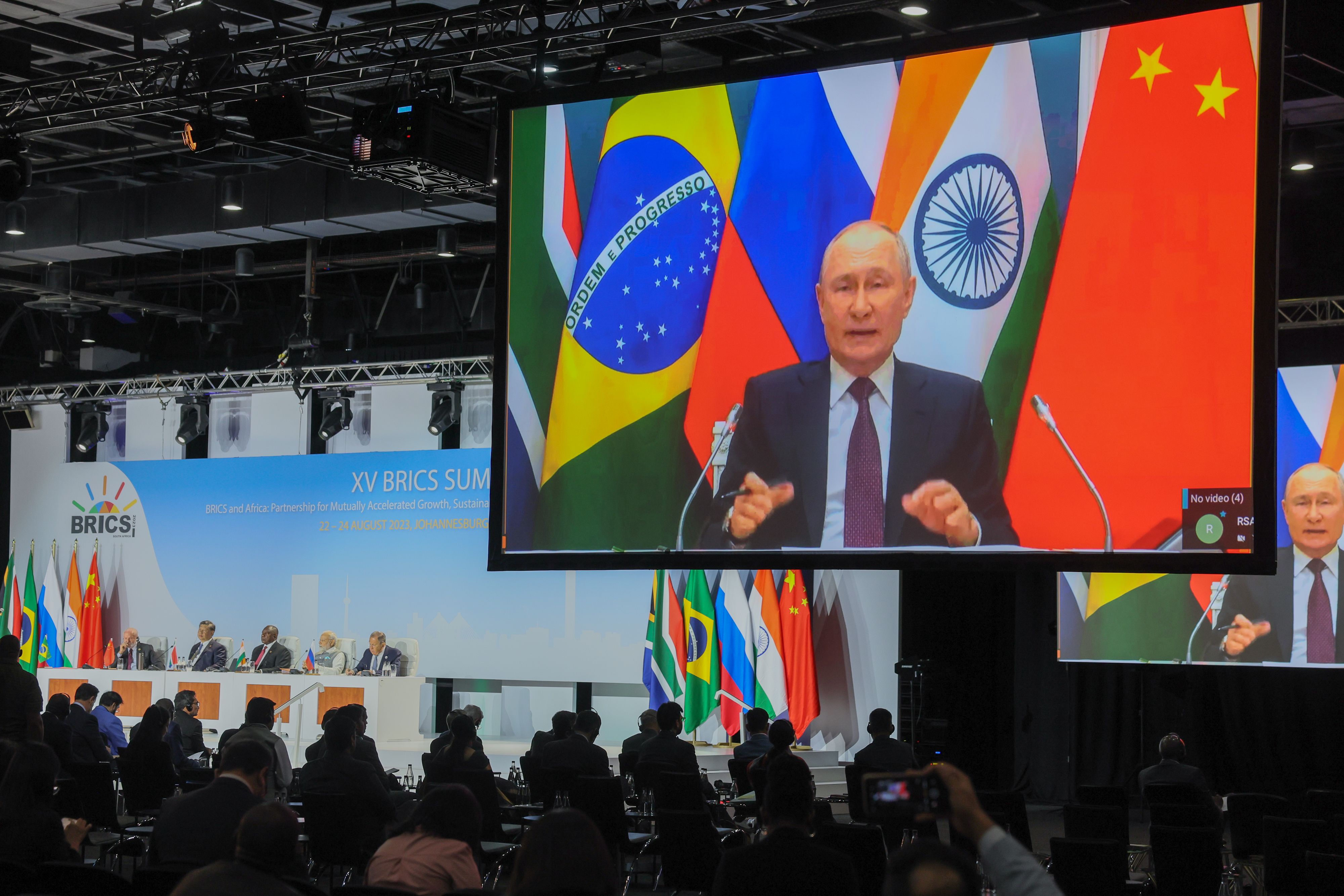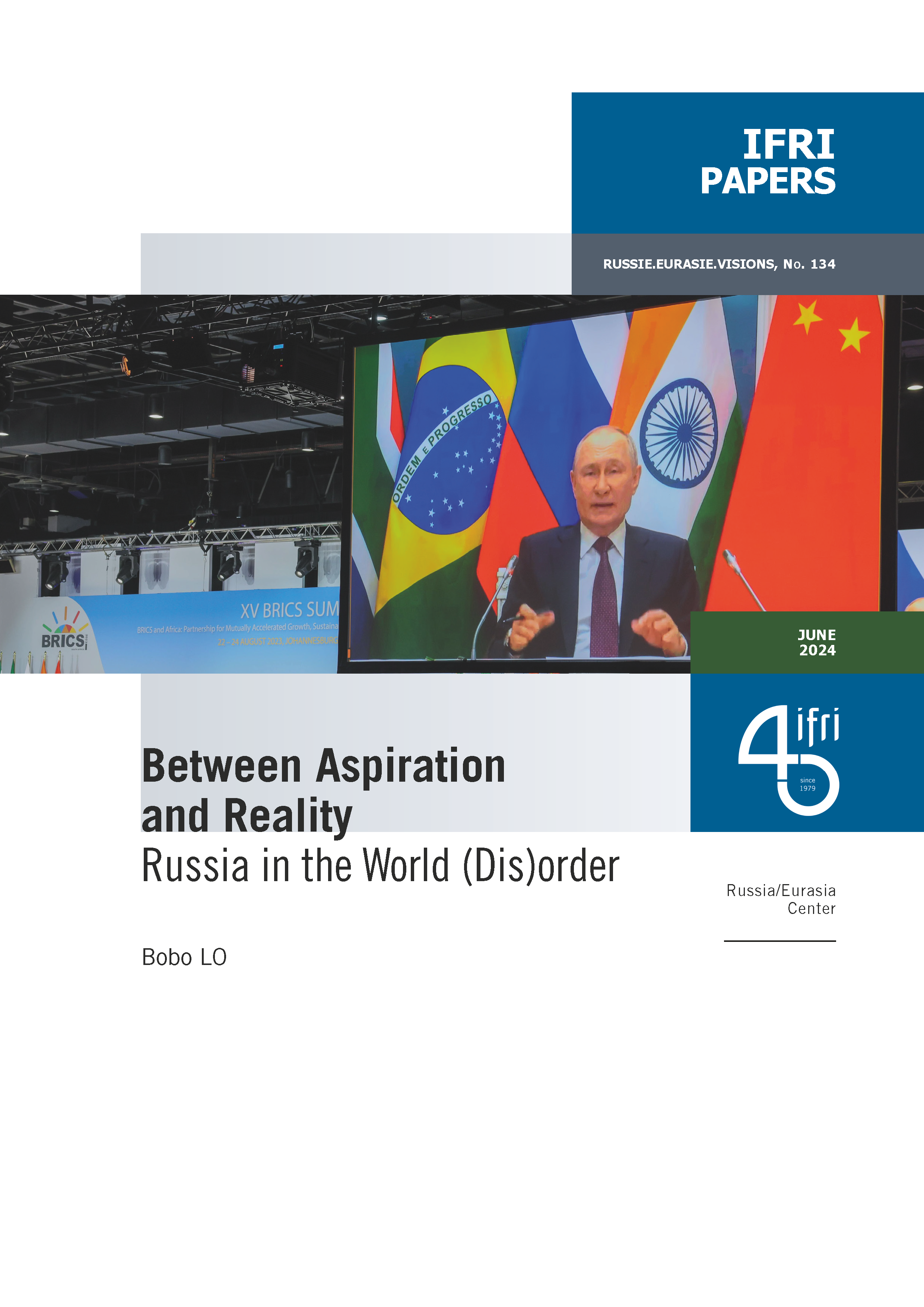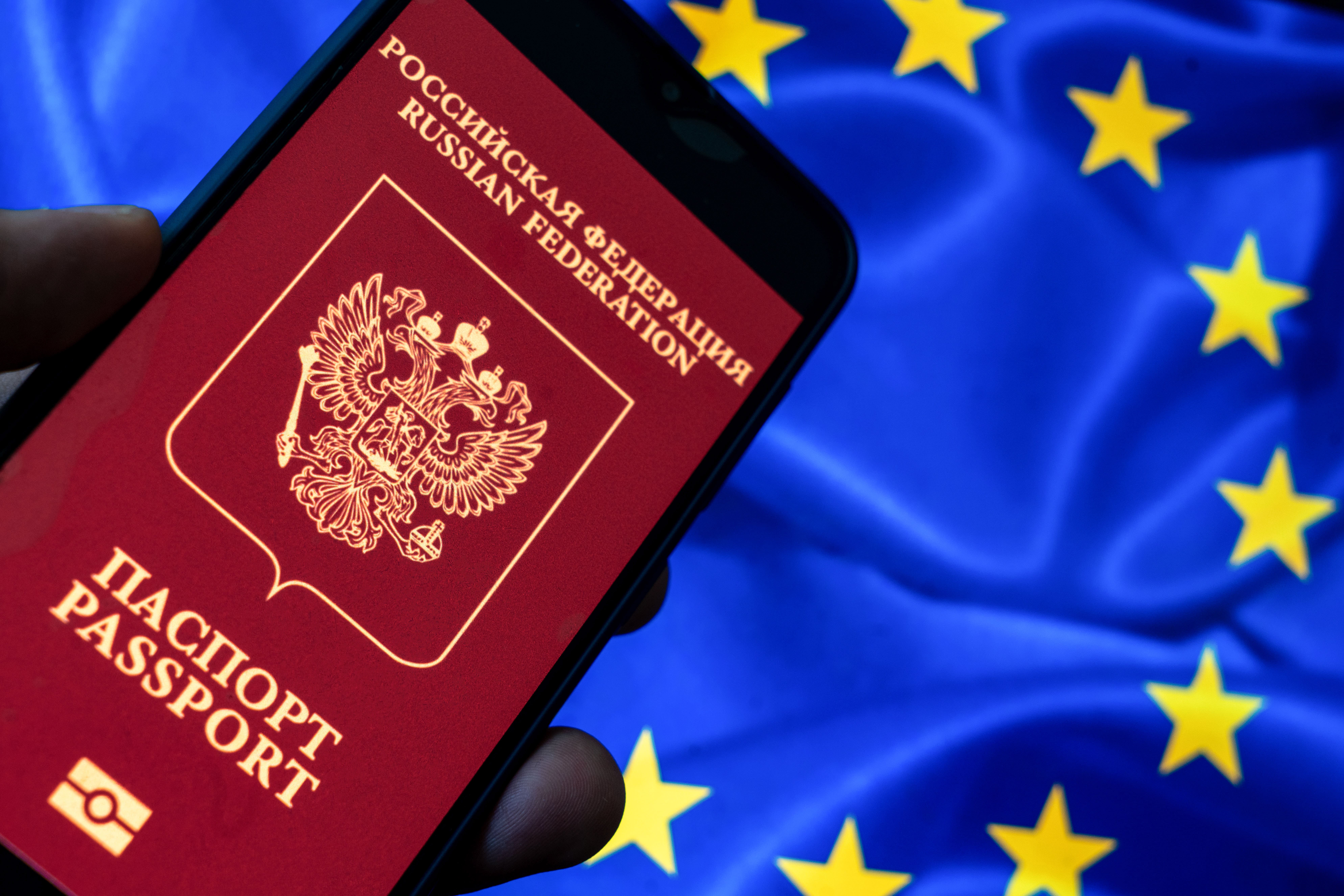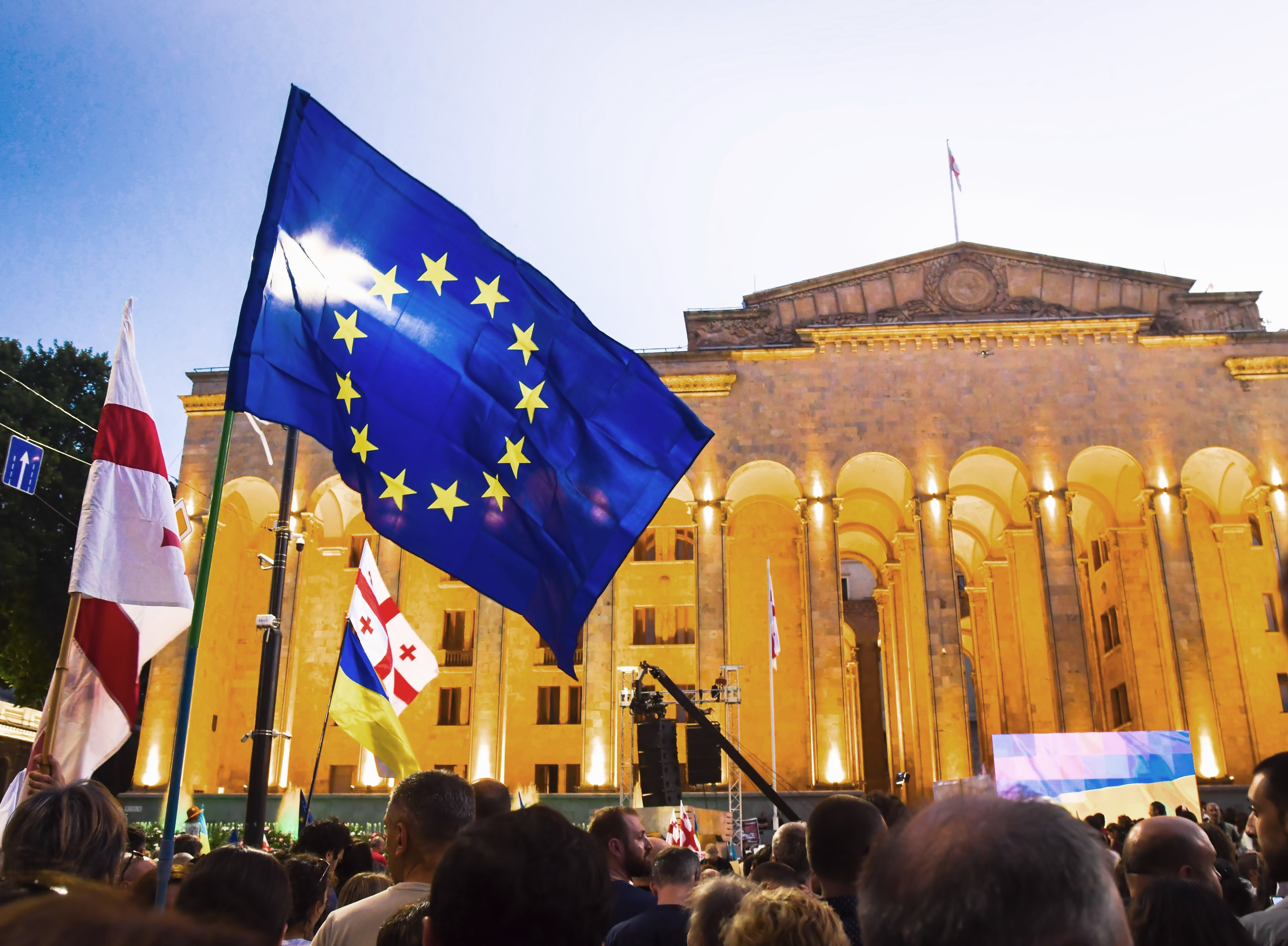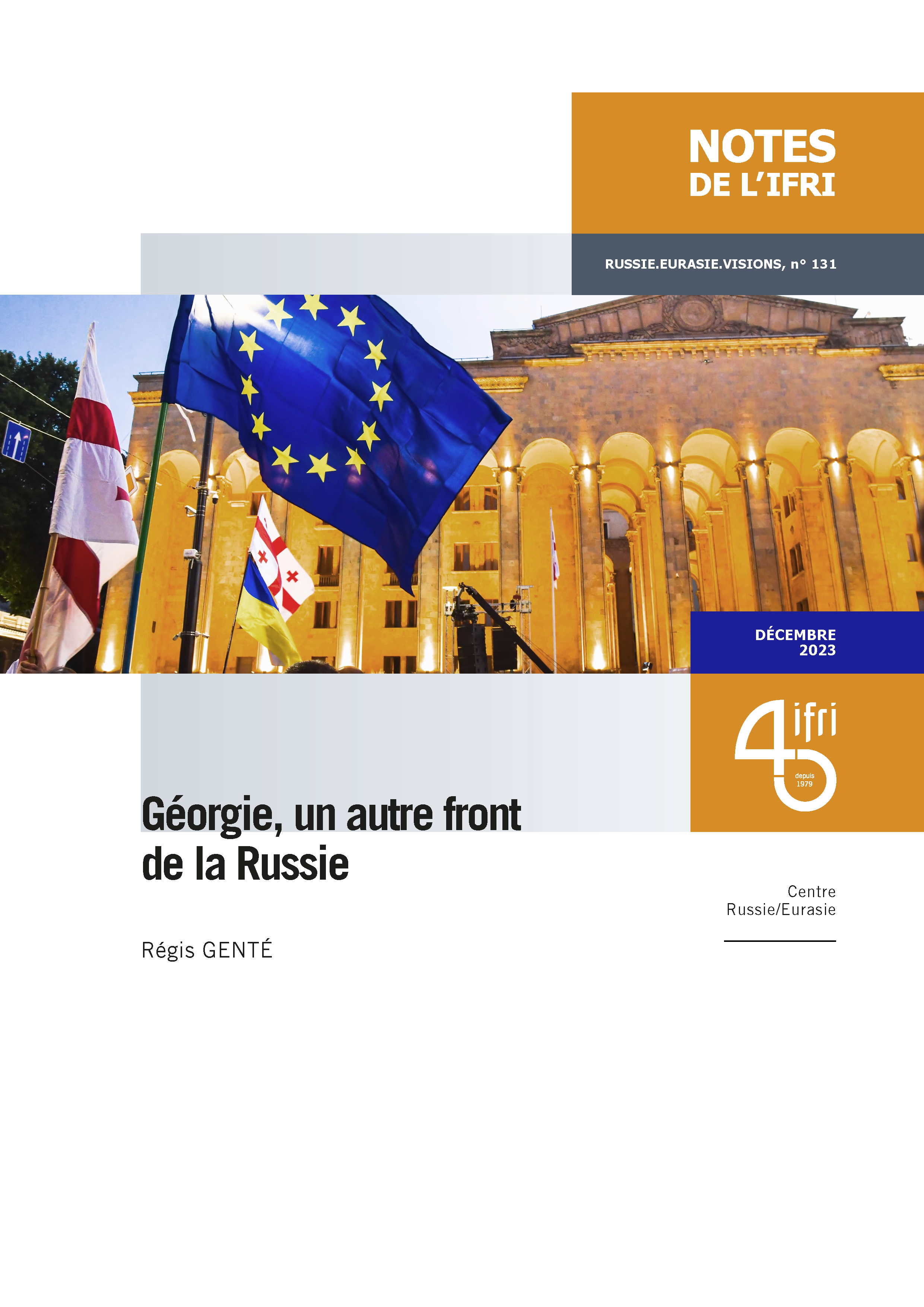Russia/Eurasia Center
Founded in 2005 within Ifri, the Russia/Eurasia Center conducts research and organizes debates on Russia, Eastern Europe, Central Asia, and the South Caucasus. Its goal is to understand and anticipate the evolution of this complex and rapidly changing geographical area in order to enrich public discourse in France and Europe and to assist in strategic, political, and economic decision-making.
Read more


Director of the Russia/Eurasia Center, Ifri
Publications
See all our interventions
Flagship Publications
Titre Bloc Axe
Research Areas
See all our interventions
Titre Axe de recherche
Russian Economy and Society
The Economy and Society research axis within Ifri's Russia/Eurasia Center is interested in economic questions including the impact of Western sanctions on the Russian economy as well as the evolution of society (demography , middle classes, youth, education, opposition, militarization, protest movements, etc.).

Titre Axe de recherche
Russian Domestic Politics
The Domestic Politics research axis within Ifri's Russia/Eurasia Center analyzes Russian domestic politics, the evolution of the political system and its elites, as well as their relations with society.
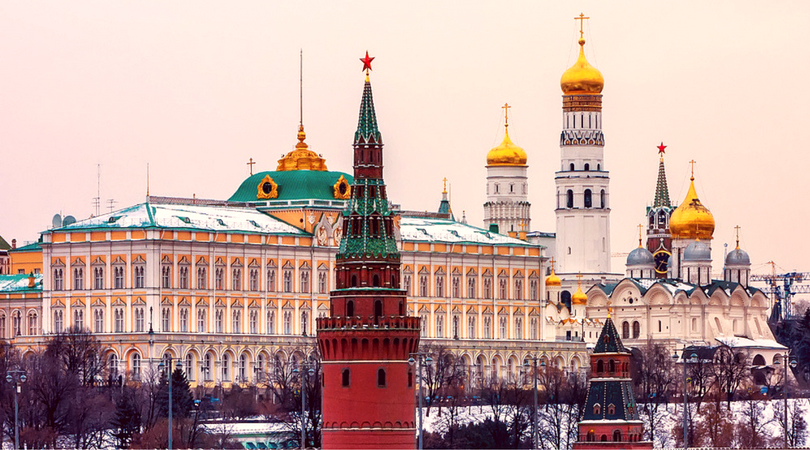
Titre Axe de recherche
Russian Foreign Policy and Defense
The Foreign Policy and Defense research axis within Ifri's Russia/Eurasia Center examines Russia's relations with the former Soviet republics and the rest of the world, particularly the West and China. A specific importance is given to defense and security issues.
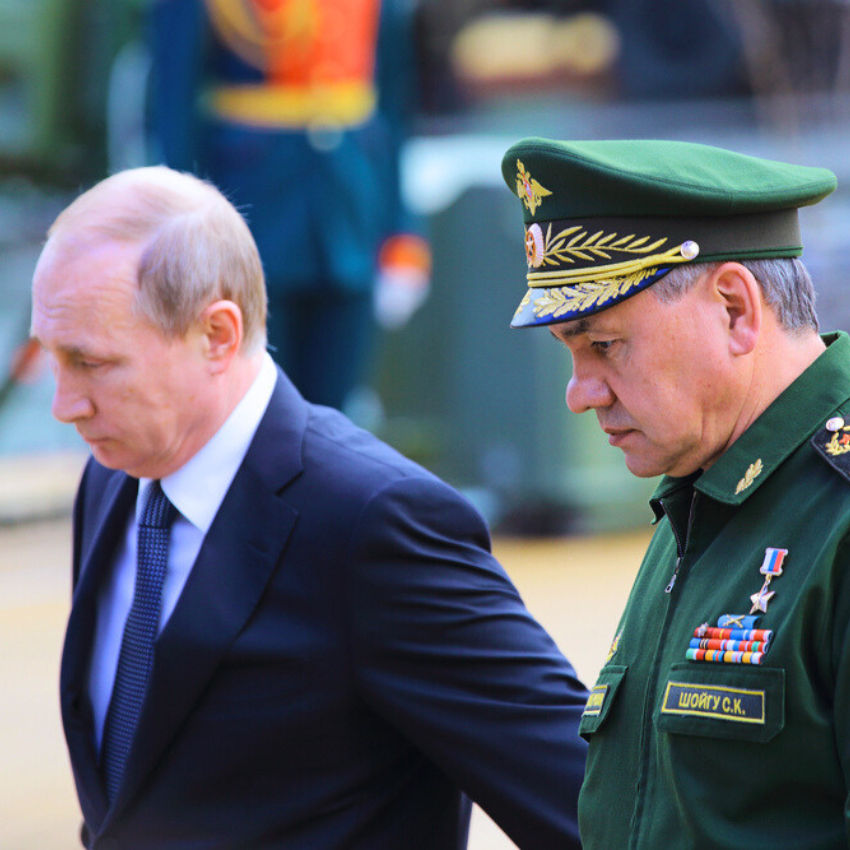
Titre Axe de recherche
Eurasia
The Eurasia research axis within Ifri's Russia/Eurasia Center analyzes internal developments in Ukraine, Moldova, Belarus, Georgia, Armenia, Azerbaijan, Kazakhstan, Uzbekistan, Turkmenistan, Tajikistan and Kyrgyzstan, as well as their relations with the Russian Federation and other regional and global powers.
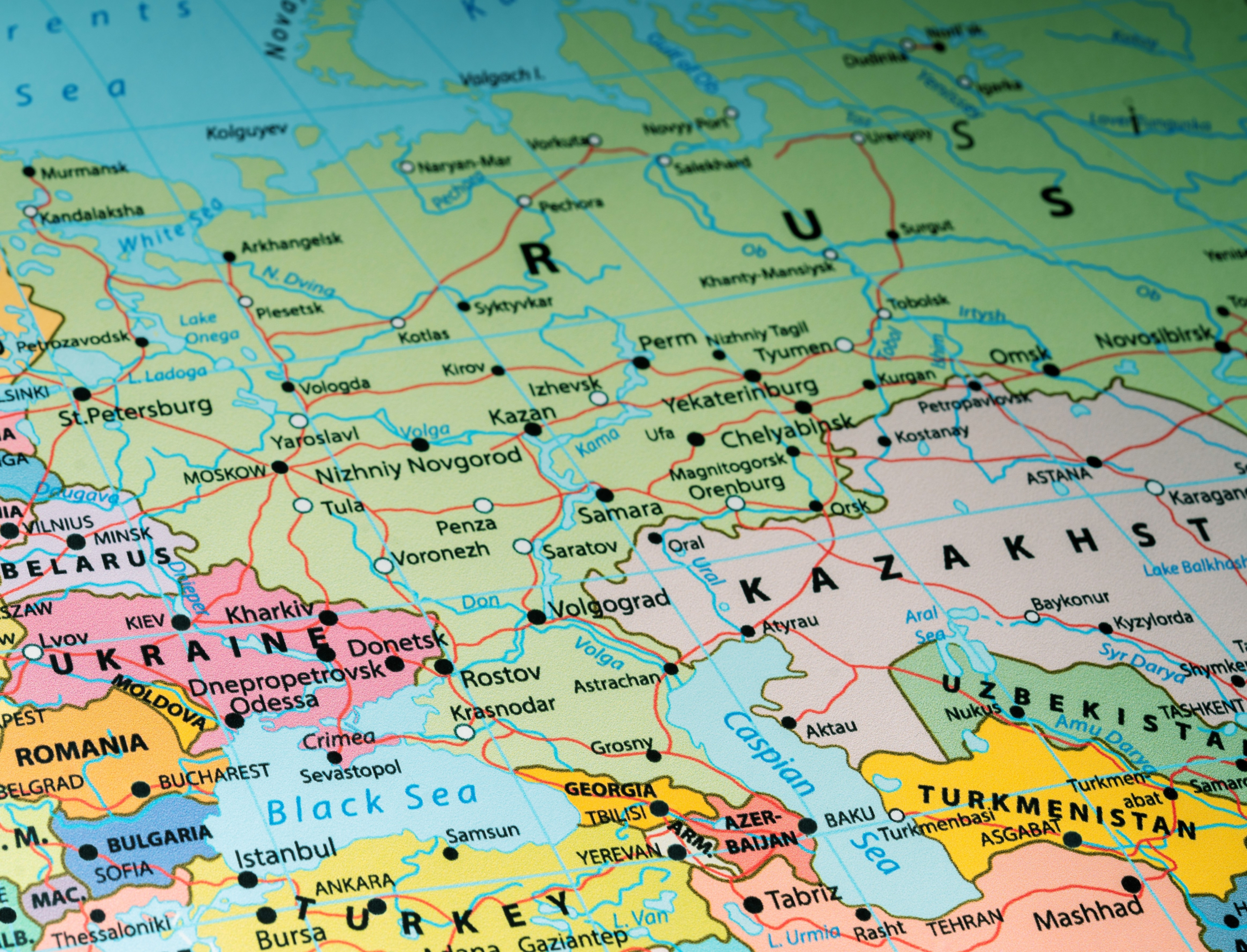
Publications
Internal and External Impact of Russia's Economic Crisis
Even though Russia's economy has returned to growth-on the back of higher oil prices-the financial crisis of 2008-09 will continue to reverberate across Russian politics and foreign policy. Domestically, the crisis has called into question the "social bargain" of the Putin years. It has also complicated President Dmitry Medvedev's push for economic liberalization and modernization.
Russia, China and the United States: From Strategic Triangularism to the Postmodern Triangle
Over the past decade, there has been much talk about a new world order, in which American "unipolarity" would be superseded by more equal arrangements between the great powers. One such idea is a return to the Russia-China-US triangle.
Georgia, Obama, the Economic Crisis: Shifting Ground in Russia-EU Relations
The firmly entrenched stagnation of relations between Russia and the European Union is leading to mutual dissatisfaction and even distrust. The failure of current institutions and practices to adapt to the challenges of the international political and economic environment and the outdated (for both Russia and Europe) agenda, are responsible.
What Is China to Us? Westernizers and Sinophiles in Russian Foreign Policy
As China's role in shaping the world grows, Russia is increasingly unable to resist its neighbor's economic and political influence. As a result, Russia's China discourse has evolved from the one dominated by Westernizers to one largely controlled by Sinophiles. The latter favor development of relations with China based on Russia's economic and security priorities. Although the official discourse remains focused on strengthening ties with Europe, the state is increasingly subject to pressures by various groups, both inside and outside state structures, with preferences for China. For the Western world, the prospect of the growing "Sinophilization" of Russia's foreign policy implies the need to strengthen ties with Russia, while preserving the existing level of strong relations with China.
Making Good Use of the EU in Georgia: The "Eastern Partnership" and Conflict Policy
After the European Union's intervention in the August 2008 Russo-Georgian war, the EU has stepped up the visibility of its involvement in the South Caucasian state. Its political, economic and manpower engagement is now vital to the country's prosperity and stability. The Eastern Partnership, launched in May 2009, is a further signal of the EU's commitment to the countries on its Eastern borders. However, the new initiative is insufficient to tackle the roots of Georgia's secessionist problems. Indeed, these prove to be more complicated than the Russia vs. Georgia conception that Tbilisi subscribes to. The Union needs to establish a genuine conflict policy to complement the bilateral and multilateral framework of the EaP. Furthermore, the Union's member states need to apply themselves to the EaP's elaboration in order to ensure the project's success; otherwise it risks becoming an empty gesture rather than a viable tool for the development of the EU's partners in the region.
Russie.Nei.Visions is a digital collection of policy papers published in French, English, and Russian by the Russia/NIS Center at Ifri.
Russia and the "Eastern Partnership" after the War in Georgia
Russia's military intervention in Georgia in August 2008 sent a shock wave across the post-Soviet space, particularly the republics to the west and south of Russia. In December 2008, the European Union formalized the Eastern Partnership initiative, directed at Armenia, Azerbaijan, Belarus, Georgia, Moldova and Ukraine. In order to understand the impact of this war both on Russia's bilateral relations with these countries and on the Eastern Partnership area as a whole, this article analyzes the reactions of these former Soviet republics to the Russian offensive. Three types of response are observed: keeping distance from Russia; maintaining a balance between Moscow and the West; and, finally, changing course (from rapprochement to keeping a distance and vice-versa) vis-à-vis the former center of the Soviet Empire.
"Cool Neighbors": Sweden's EU Presidency and Russia
Sweden and Russia are close neighors with a complicated relationship. They have normal political relations with growing economic and cultural exchanges, especially on a regional basis; however, they both foster an age-old distrust, and have diverging attitudes toward democracy and human rights. Furthermore, Sweden is not interested in Russian gas exports or a gas pipeline under the Baltic Sea. During its EU Presidency in 2009, Sweden is likely to prioritize issues such as climate change, economic growth, and the Baltic Sea region. It will continue the efforts of previous Presidencies for a new partnership agreement with Russia, however. The adoption of an EU strategy for the Baltic Sea region will be a key task, and it will be linked to the Northern Dimension policy, which focuses on regional cooperation with Russia. Sweden will also push the implementation of the Eastern Partnerhip with Russia's western and southern neighbors. This may, however, strain relations with Russia and lead to increased pressure on the prospective partners. In general, Sweden is interested in cooperation with Russia, but will not jettison its support for democratic values and human rights to attain it.
The Challenges of Russia's Demographic Crisis
Russia is facing demographic challenges that are common to all developed countries, but significantly aggravated by a range of historic circumstances that have become highly unfavorable over the course of many demographic processes. Among the main challenges are very high mortality, very low fertility and, as a result, the continued negative natural increase and overall population decline in the country. Now, these challenges are exacerbated by new ones, connected with a worsening age balance, the decrease in working-age population and the growth of dependency ratio, especially as a consequence of an ageing population.
Even if an active and effective demographic and migration policy were to be implemented in Russia, it would be impossible to reach the fundamental turning point in the demographic situation-stabilization and growth in Russia's population-in the near future. For this reason, a sound policy should involve striving for change in areas that can, in principle, be changed (decrease in mortality, some growth in fertility, attraction and integration of a reasonable number of migrants), and, at the same time, adapting economic and social institutions to those elements of the new demographic reality that cannot be changed (decrease in population, ageing population, etc.).
NATO and Russia: Post-Georgia Threat Perceptions
The 2008 war in Georgia is but a milestone on the downward curve in NATO-Russia relations, one that has been characterized by misunderstandings, misplaced expectations and missed opportunities. This is not a new Cold War, but there is an obvious need for new ideas rather than repackaged old ones. NATO has to be sensitive to genuine Russian security concerns, and the latter should appreciate that manipulation, intimidation and attempts at dividing the Alliance are not shortcuts to superpower restoration. There is ample room for cooperation if the right lessons are learned, the gap between rhetoric and reality is reduced, and policies are governed by patience and pragmatism.
Russia in Latin America: Geopolitical Games in the US's Neighborhood
Russia's policy in Latin America is not a new policy but reflects long-term aspirations to assert itself as a global power and advance the idea of a multipolar world. It is a fundamentally geopolitical approach directed against the US with an economic component, rather than an economic approach to foreign policy with strategic objectives. Moscow's 2008 initiatives in the region reflected enhanced capabilities which are now in decline due to the global economic crisis. The real threat that Moscow poses to the region stems from its weapons sales to Venezuela, which the latter is already using in support of insurgency in Colombia if not elsewhere.
The Team

Our research fellows: Russia/Eurasia Center
Support independent French research
Ifri, a foundation recognized as being of public utility, relies largely on private donors – companies and individuals – to guarantee its sustainability and intellectual independence. Through their funding, donors help maintain the Institute's position among the world's leading think tanks. By benefiting from an internationally recognized network and expertise, donors refine their understanding of geopolitical risk and its consequences on global politics and the economy. In 2024, Ifri will support more than 70 French and foreign companies and organizations.








